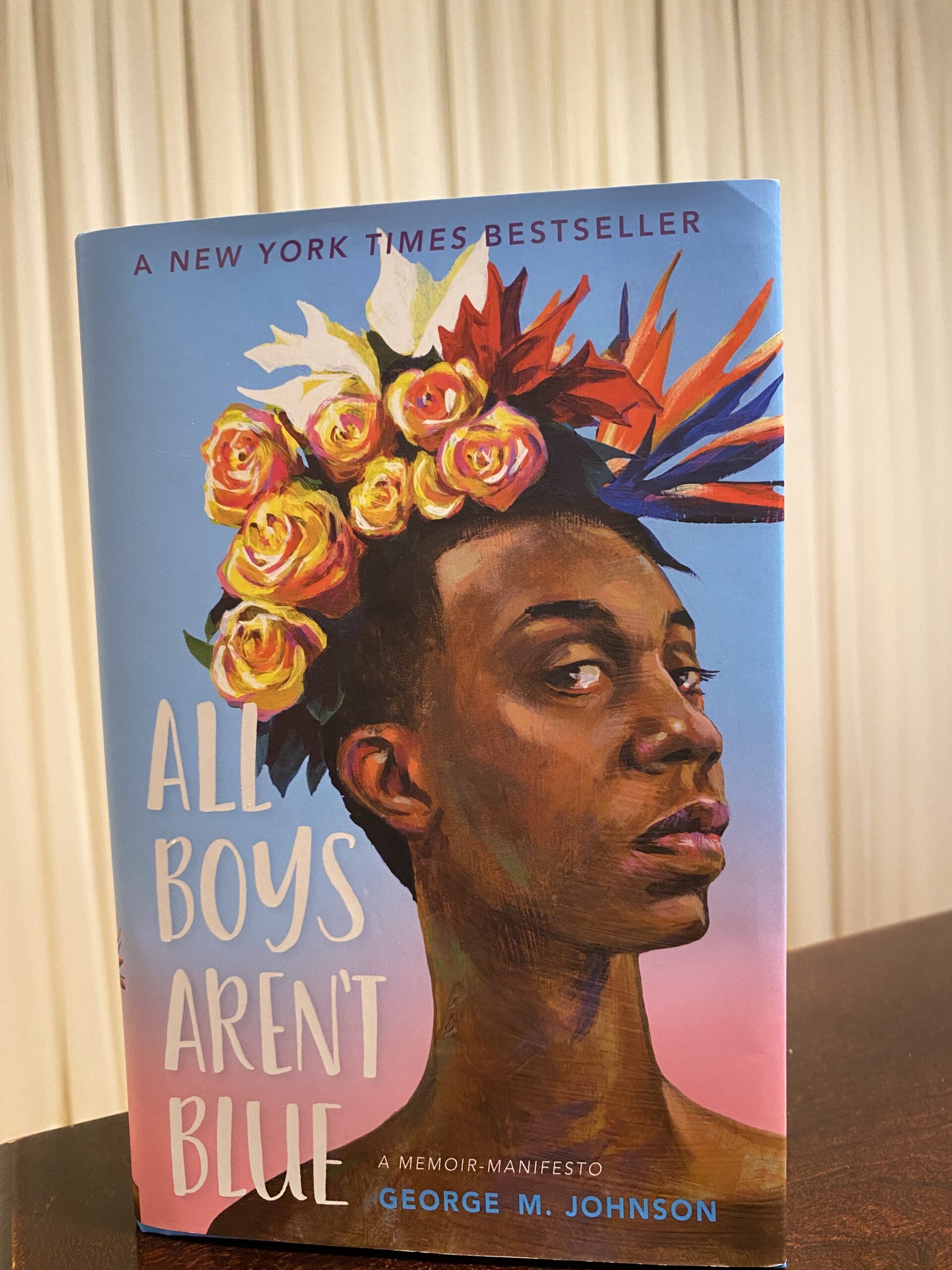By Nefertiti Nzameyo | Published November 18, 2023
Kean University’s Fall 2022 Common Read “All Boys Aren’t Blue” was added to the growing collection of banned books. Of the list, the book is ranked one of the most restricted in the United States.
Author George M. Johnson, who identifies with they/them pronouns, shares memories of their past that served as pivotal moments concerning identity and understanding the world around them.

Johnson invites the reader to how they perceive themselves at different life stages and encourages people to take power in their respective journeys to self. Being a member of the black and queer community are recurring themes in Johnson’s memoir.
The book was published originally on April 28, 2020, and since then, it has received mixed reviews about its presence in the classroom and on shelves.
“I’ve been fighting for LGBTQ rights for as long as I can remember because, in turn, I’m fighting for myself and fighting for people like me…Writing is a form of activism… And any time you do something that’s a form of activism, there’s going to be another side that doesn’t like it,” said Johnson in an NPR interview.
The controversy circulating Johnson’s book reveals the ongoing battle of minority communities, like the LGBTQIA+ (Lesbian, Gay, Bisexual, Transgender, Queer, Intersex, and Asexual), continue to encounter in their daily lives.
Despite the legislative, judicial, and social milestones that have emerged in recent years, they still struggle to speak of their experiences and be accepted. Still, Johnson and those in support of his work defend its relevance.
At an Illinois hearing in early September, governmentofficials gathered to address the heated debate about the books young students can read. Senator John Kennedy expressed dismay with the anti-book ban bill signed by Governor J.B. Pritzker.

“Librarians alone shouldn’t get to decide whether the two books that I just referenced should be available to kids,” Pritzker said.
To support his argument, he cited sexual scenes from two novels, Johnson’s being one of them.
Kean University recognizes the importance of promoting diversity. The Office of Diversity, Equity, and Inclusion and the PRISM student organization are committed to ensuring all University members have representation and a judgment-free space where they are heard.
Erin T. Lester, coordinator for the Office of Diversity, Equity, and Inclusion, explains censorship and how it reflects how fragile our national, intrapersonal, and individual egos are when we feel threatened by the truth of people who experience differently.
“Since our Office of Diversity, Equity & Inclusion inception, we defend the freedom to author, learn, and explore work that celebrates and challenges our students, faculty, and staff. Critically thinking and engaging in dialogue is what makes us a world-class University today and even better tomorrow,” said Lester.
Proponents of book banning identify aspects including explicit language, sexual content, and other taboo concepts in literature and express passionate disapproval with shared efforts to revoke the spread of the book.

The resistance authors face drastically alters the ease of communicating with their intended audiences.
Deborah Caldwell-Stone, the ALA’s Office for Intellectual Freedom director, explains to CNNthat we see less than what used to happen. Individual parents would see their student read a book and ask questions about it through a teacher or librarian to have discussions.
“What we are seeing now is organized political advocacy groups go to school boards with an agenda with a long list of books they want to be banned because those books don’t fit their political, moral or religious agenda,” said Caldwell-Stone.
Despite the opposition faced by Johnson’s book, its role in challenging social norms by exposing a different perspective has also gained positive feedback from students.
Sarah Rosales, a sophomore majoring in communications journalism and minoring in English, explains how Johnson’s book contains a meaningful message that may have been overlooked by the people who banned it.
“I always question whether the people who call for the banning of this book have read the book to its entirety and have it sink in for what it actually means…,” said Rosales. “Johnson’s story teaches empathy for people who don’t align with those identities, and to write their story off as one that should be hidden away for ‘the sake of children’ just seems so incredibly one-dimensional.”

You must be logged in to post a comment.